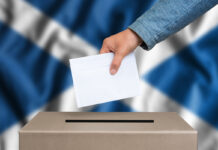Trade groups say businesses must not incur costs

CLEAR and detailed parameters of the way in which local authorities could implement a tourist tax, a pledge that hospitality businesses are compensated for any costs involved in administering such a scheme, and a guarantee that funds raised by the tax are ring-fenced for tourism-related purposes – those are among the measures trade groups are calling for following the “bitterly disappointing” decision by the Scottish Government to give councils the power to implement a transient visitor levy (TVL).
The Scottish Tourism Alliance (STA) and UK Hospitality say the announcement that councils will be able to implement a TVL in their area if they choose, which was made on January 31 – just days after a ‘national discussion’ on a tourist tax closed – as part of a deal struck with the Scottish Greens to get the Budget passed, has caused concern in the hospitality industry over how the measure may or may not be adopted in different local authority areas, the potential cost to business and the impact on tourism.
The trade groups have called for assurances from the Scottish Government that the hospitality industry will be fully included in the forthcoming formal consultation process and that the ensuing legislation will include “detailed principles and clarity on how a TVL could be used to raise additional revenues… to avoid a scenario where there are different schemes used across Scotland”.
Marc Crothall, chief executive of the STA, said: “Whether a local authority adopts it or not, the methodology and principles need to be consistent; businesses that operate in different areas need clarity and consistency.
“The legislation must also ensure that a TVL can’t be subject to Online Travel Agency (OTA) commission or VAT, that businesses avoid incurring any additional costs in collecting a TVL, and that they are compensated if additional costs are incurred.
“It is also important that the money raised from the tax is ring-fenced for tourism.”
Willie Macleod, executive director for Scotland at UK Hospitality, agreed.
“We are seeing significant figures of how much it might cost a business to prepare for this and the ongoing costs to operate it,” he said.
“We would want businesses to be able to deduct costs for the initial set up and the ongoing costs.”























